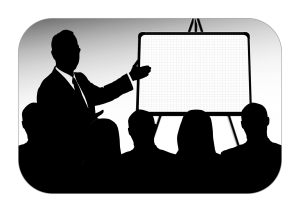Updated July 3, 2023

Introduction to Communication Skills
Good communicator – You are hired!! Bad communication skills- You are fired!!!! Are the situations sound familiar to you? In today’s world, communication with others is a vital part. Interpersonal communication plays a key to an individual’s success. Communication skills are important in deciding an individual’s career path in the corporate world. It is very important to reach out to supervisors, peers, subordinates, etc., in the workplace. For that, communication skill is crucial. Unfortunately, not everyone is born with good communication skills. For a majority of people, they need to learn these skills from an external source and then practice it repeatedly so that they can communicate with ease.
Effective communication skills are very important in professional and personal life. Several jobs are there in which one needs excellent communication skills. In addition, there are several social occasions where people with great communication skills enjoy better social status and contacts/friends.
Communication is simply transferring information from one person to another via a medium. The ultimate goal of any communication process is understanding. Two entities are involved in communication: the sender and the Receiver. The sender sends the information, and the Receiver perceives the information through an information medium. The roles can get interchanged based on the nature of the conversation.
Effective communication involves both verbal and nonverbal communication. Communication involves expressing feelings through words and nonverbal communication like postures, body language, gestures, how one dress, etc. Communication also involves active listening skills, stress management techniques, recognizing others’ emotions, etc.
Effective communication acts as an interconnecting substance that helps a person to deepen his connection to other members of society or the workplace. It helps develop new contacts, improved teamwork, problem-solving capabilities, and decision-making abilities.
(How to improve communication skills) Effective communication skills are more effective when it comes instantly. Teaching these skills and being an excellent communicator requires time, effort, and hard work.
There are different types of communication.
Three Pillars of Communication Skills
How to improve communication skills is a question we all have, so the basic communication skills model has three layers: Ethos, Pathos, and Logos.
Ethos
The meaning of this layer is “Ethics.” This measures the credibility of a speaker. This layer signifies the trustworthiness of a speaker. This, in turn, signifies the attracting capability of the speaker- how the audience would accept the speaker.
Pathos
This means “empathy.” In other words, how well a speaker understands and comprehends the feelings of his listener.
Logos
This word means “logic.” It signifies the strength and power of one’s thoughts (speaker) and how well the speaker presents his thoughts to the audience.
This model emphasizes that to communicate effectively, one should have credibility, understand his listener’s feelings, and skillfully present his ideas to the audience.
Some ground rules which should be kept in mind while communicating with others-
One should not say loudly anything and everything that comes to his mind. One should take time to recollect his thoughts and properly analyze those thoughts before speaking.
-
- One should align his thoughts so that the true thoughts are expressed in words, thereby decreasing miscommunication.
- One should always analyze his own words; that is, one should know how the audience will perceive his message.
- The speaker will appear intelligent and mature if he speaks fluently and confidently.
- Nonverbal communications are equally important while communicating with others. The messages conveyed by eye contact and body language are vital while establishing communication with someone.
- The flow of communication should be clear, precise, crisp, and easy to understand.
- It is best to minimize the use of complicated language and jargon.
- Avoiding sexist and racist terminology while communicating is always advisable to prevent offensive situations.
- Before communicating with others, consider cultural differences, attitudes, past experiences, abilities, etc.
Several communication barriers can prevent a receiver from correctly interpreting the message sent by the sender. They are-
- Emotional Barriers – When a person is over-excited or extremely sad, then it is more likely to cause misunderstandings in his communications. The receiver may incorrectly perceive the messages. In such cases, it is advisable to calm down first and then continue with the conversation.
- Physical Barrier – Sometimes, there can be issues with the communication medium, like excessive sound in the surroundings, hissing noise on the telephone, the speaker’s voice not being audible, etc. As a result, the receiver may not hear the messages properly.
- Lifestyle Barriers – A person cannot communicate effectively when he is multitasking. When people perform multiple jobs simultaneously, he tends to miss the nonverbal signals in communication.
- Improper Nonverbal Communication – The verbal message should match the nonverbal cues. Otherwise, the receiver will not be able to interpret the correct meaning of the message. For example, one can’t say “no” by nodding to “yes.”
How to Improve Communication Skills?
- Sharpen your Listening Skills – The first and foremost thing one can do to improve communication skills is to listen carefully to what the other person is saying consciously. In professional life, whether in meetings or group discussions, it is imperative to engage in active listening.
- Practice Empathy – One should always try to understand the other person’s viewpoint, which reduces misunderstanding to a great extent. Developing empathy towards others strengthens any relationship. It helps you comprehend the communication’s unspoken aspects and respond accordingly.
- Try to be BRIEF, but Specific – According to the popular notion, BRIEF– Background, Reason, Information, End, and Follow-Up. This is followed while sending professional emails. It helps to keep the emails short but containing all vital points. This acronym can be used for verbal communication too. Any official communication should follow the 7 C’s- Complete, Coherent, Correct, Courteous, Clear, Concise, and Concrete.
- Customize your Message to your Audience – The communication message would differ for coworkers, bosses, seniors, kids, elders, etc. It is wise to gauge the other person’s attitude, edit the message accordingly, and deliver it.
- Avoid Distractions- It is unprofessional and rude to check your phone messages while another person speaks with you. If it is unnecessary to use the technology, you can avoid it for some time. If you can’t avoid it, try to look up to that person while he is sharing something.
- Make Clarifications as and When Needed – When communicating with others, ask questions in between and avoid staring or nodding silently. It is also good to repeat the last few words of the speaker, which shows your interest level. It also helps in clarifying facts that may have been wrongly interpreted. It is also a nice way to fill awkward silences between conversations. It helps initiate small talks between two people, increasing their bonding.
- Present a Story – Stories create a lasting impression on the audience. Stories usually activate our brain cells, make the presentation less boring, make us perform better in interviews, and so on. The communicator communicates the idea to the receiver as a story, making it interesting and attractive.
- Prepare a Small Script – One should always be prepared for small talk and have a fixed plan regarding small talk. The FORD method (Family, Occupation, Recreation, Dreams) is also quite helpful in initiating small talks. The FORD method helps small talks convert into a long conversations with meaningful information sharing.
- Avoid Unnecessary Communication Fillers – The unnecessary words in between conversations, like Ah, Um, Oho, etc., disturb the natural flow of the speech. It is better to avoid them as much as possible. Try to take a deep breath and pause in between speeches to minimize the use of communication fillers.
- Check Your Body Language – Improper body language during speaking may represent a different meaning. So nonverbal communication, like body posture, gestures, eye contact, laughter control, etc., should be properly done to convey the correct meaning of the conversation.
- Make Correct Use of Humor – Humor relaxes people and releases endorphins, which help lower anxiety and stress. Most people can relate to someone who makes them laugh heartily. It is wise to be funny or witty in conversations, but ensure it is appropriate to the situation. Using humor should minimize communication barriers and gain the affection and trust of others.
- Avoid Differentiating People – It is always advised to communicate with other people equally. Under all situations, avoid talking to people’s backs and avoid taking favorites. If you treat people equally, you can easily build trust and respect. Always verify what people understand from your conversation to avoid negative feelings and confusion. Always encourage honest and open feedback from your receiver.
- Make a Conscious Effort of Conflict Resolution – Be prepared to resolve any issues as they arise. It is vital to be an effective negotiator. You can apply your listening skills to understand all perspectives of an argument. In conflict resolution, try not to be too judgmental and practice empathy.
- Keep a Positive Attitude – People avoid people who are always miserable and sulky. It is always best to maintain a cheerful, positive attitude towards life. Sometimes in life, things do not go as planned. In such cases, maintain your calm mind and communicate effectively with people. Do not forget to keep a bright smile on your face.
- Do Not Interrupt – When someone is giving a speech, do not interrupt him repeatedly. This disrupts the natural flow of communication. So better bite your tongue and hold back. Let the other person finish his speech before you start putting your questions.
- Try to Assert Yourself – The communication between two more persons should be open, clear, direct, honest, and respectful. Direct and assertive expression of your ideas helps increase self-esteem and improve decision-making. One should value his idea, accept feedback positively, learn to say no, and positively express all negative ideas. Sometimes it is alright to be angry, but one should be respectful.
Communication is a vital part of everyday life- personal or professional. Lack of proper communication can have terrible results like emotional turbulence, frustration, stress, depression, unproductive meetings, inefficient teamwork, inability to achieve goals, etc.
Conclusion
In the article, How to improve communication skills, It is essential to be a good communicator to be successful, popular, and famous. We are living in a society, and we have to socialize. To socialize well, it is very important to be a good communicator. It maintains your dignity, respect, and standard in society. So, let’s hope these tips will make you soar high in communication skills.
Recommended Articles
We hope that this EDUCBA information on “How to Improve Communication Skills?” was beneficial to you. You can view EDUCBA’s recommended articles for more information.







